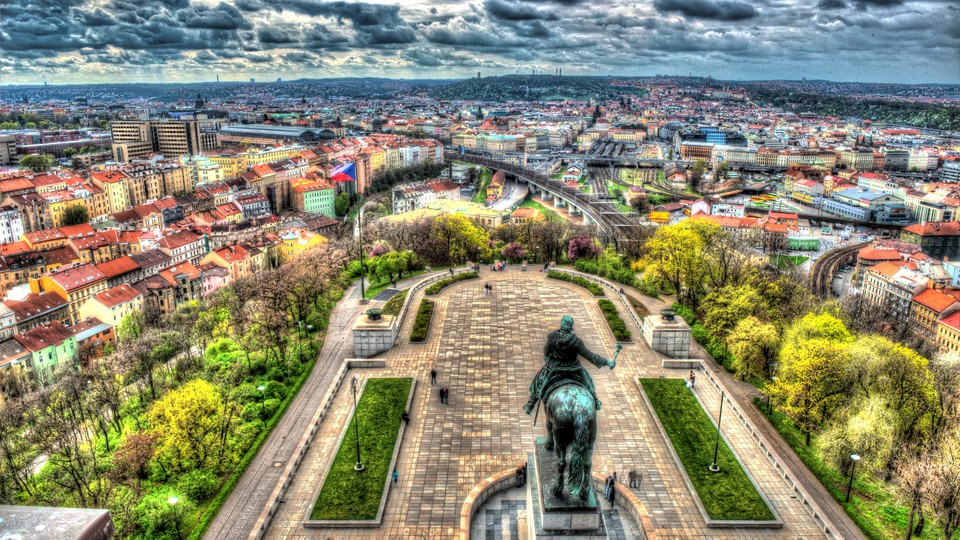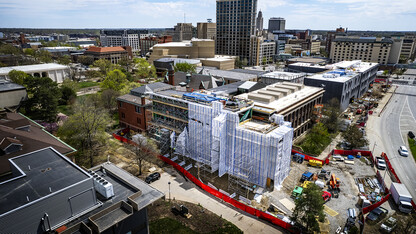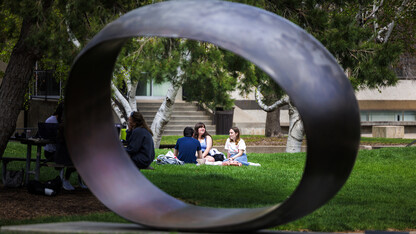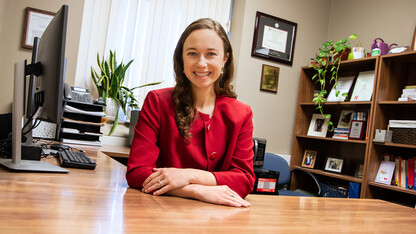· 4 min read
A celebration of resistance: Prague Spring 50 events begin

In 1968, citizens of Czechoslovakia were working toward freedom and democratization until the Soviet Union used its military might to crush what is now known as the Prague Spring.
Jerry Dolejs remembers it well. He watched hundreds of tanks and military trucks drive through his small town on their way to Prague. Seeing this, he decided to escape. He fled to Egypt, then Greece. He emigrated to Canada, but now lives in Salt Lake City, Utah.
He’ll be visiting the University of Nebraska-Lincoln in April with his brother, Joe, who also escaped, and many other Czech nationals and expatriates to celebrate the 50th anniversary of Czech efforts toward democracy after World War II, and to recall the years behind the Soviet Union’s Iron Curtain.
The university’s department of history is sponsoring Prague Spring 50, a commemoration of the Prague Spring and the aftereffects of the Soviet invasion of Czechoslovakia, April 3-7 in the Sheldon Museum of Art’s Abbott Auditorium.
James Le Sueur, professor and chair of history, has spearheaded the efforts to bring 15 speakers who will share a variety of perspectives on the Prague Spring, communism, the Velvet Revolution of 1989 and life in the Czech Republic in present day. The keynote presentation will be given by Michael Žantovský, who was a confidant and spokesperson for Václav Havel, the Czech playwright who became president of the Czech Republic following the Velvet Revolution and the fall of communism in Czechoslovakia.
Le Sueur said Žantovský will talk about Havel’s leadership and the peaceful transition of power in 1989.
Other speakers include Eda Kriseová, a writer blacklisted under communist rule; Czech economist and media personality Tomáš Sedláček; Czech ambassador Hynek Kmoníček; and renowned Czech artist David Černý.
“I put together this group of speakers to represent a wide range of voices, who both lived through the events of 1968, and also those who grew up amid communism and then radical political change,” Le Sueur said. “This is a unique gathering of historical witnesses to political upheaval, perhaps one of the largest gatherings like this in the world. I wanted to give Nebraskans – many of whom have a strong Czech heritage – the opportunity to hear these stories.”
The event is drawing an international audience as well. Le Sueur said he’s heard from Czech people around the globe who will be attending and are excited for the opportunity to visit with others who escaped communist rule.
“The caliber of speakers and personal significance of the Prague Spring 50 event in Lincoln inspired us to attend from Australia, our second home since 1969,” sisters Alena and Ivana Jirásek, who fled the Czech Republic in 1969, wrote to Le Sueur in a shared email. “We value the opportunity to reflect anew on the events of 1968 in Czechoslovakia and all that followed.”
There are also two photography exhibitions planned. The Sheldon will host work by Czech photographer Josef Sudek, while portraits of Havel by Alan Pajer will be displayed in the Lentz Room of Love Library.
In addition to speakers and exhibitions, three concerts are planned, including a concert and talk by Martin Kratochvíl and Tony Ackerman, jazz musicians who hail from the Czech Republic and the United States, respectively, but who lived in Prague during the “normalization,” in which censorship silenced many writers, musicians and artists.
All presentations and concerts are free and open to the public. There will also be live streams of most events.







